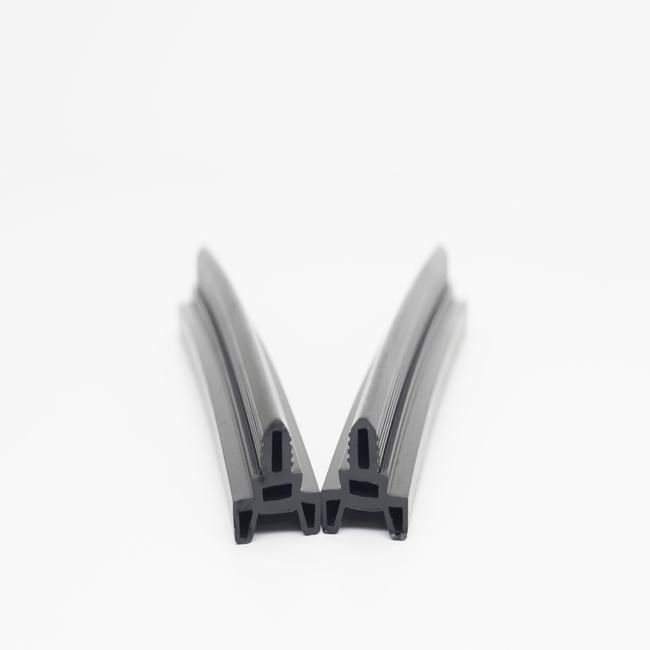Industrial seals are critical components used in various industrial applications to prevent the leakage of fluids, protect machinery and equipment from contamination, and maintain the integrity of systems and processes. These seals come in a wide range of types, materials, and designs, and they serve a multitude of functions in industries such as manufacturing, oil and gas, automotive, aerospace, and many more. A comprehensive description of industrial seals involves understanding their purpose, types, materials, applications, and the critical role they play in industrial processes.
1. Purpose of Industrial Seals:
Industrial seals are designed to serve several important functions in industrial settings:
a. Leak Prevention: The primary role of industrial seals is to prevent the unwanted leakage of liquids, gases, or powders. This is crucial for maintaining the safety, efficiency, and environmental compliance of industrial processes.
b. Contamination Control: Seals help protect machinery and equipment from contamination by preventing the entry of dust, dirt, moisture, and other foreign substances, which can lead to premature wear and equipment failure.
c. Pressure and Temperature Management: Seals are essential for maintaining the pressure differentials and temperature control required in various industrial systems. They ensure that processes operate within safe and efficient parameters.
d. Noise and Vibration Damping: Some seals are designed to reduce noise and dampen vibrations, enhancing the safety and comfort of industrial environments.
2. Types of Industrial Seals:
There are numerous types of industrial seals, each tailored to specific applications and requirements. Common types include:
a. Mechanical Seals: These are used in rotating equipment such as pumps and compressors to prevent leakage and maintain a seal under dynamic conditions.
b. O-Rings: O-rings are circular elastomeric seals that provide an effective, simple, and economical means of sealing against fluid and gas leaks.
c. Gaskets: Gaskets are flat seals typically made of materials like rubber, metal, or composite materials. They are used to create a static seal between two surfaces.
d. Oil Seals: Also known as shaft seals, oil seals are used to prevent the leakage of oil and lubricants in rotating equipment, like engines and gearboxes.
e. Hydraulic Seals: These seals are used in hydraulic systems to prevent fluid leakage, withstand high pressure, and maintain the integrity of the system.
f. Pneumatic Seals: Pneumatic seals are designed to operate in air or gas systems and maintain a seal under low-pressure conditions.
g. Radial Lip Seals: Radial lip seals are used in a wide range of applications, including motors, gearboxes, and pumps, to protect against oil leakage.
h. Rotary Seals: These are used in rotary equipment to prevent leakage of fluids or gases while the equipment is in motion.
3. Materials:
Industrial seals are constructed from various materials, each chosen for its compatibility with specific operating conditions. Common materials include:
a. Elastomers: Materials like rubber, silicone, and polyurethane are used for their flexibility and ability to seal against fluids and gases.
b. Metals: Materials like stainless steel, carbon steel, and alloy metals are used for their durability and resistance to high temperatures and aggressive chemicals.
c. Polymers: Materials such as PTFE (Teflon) are used for their chemical resistance and low friction properties.
d. Composites: Some seals are made from composite materials that offer a combination of characteristics, such as flexibility and high-temperature resistance.
4. Applications:
Industrial seals have a wide range of applications across various industries, including:
a. Manufacturing: In machinery and equipment used in manufacturing processes to maintain efficiency and reduce downtime.
b. Oil and Gas: In drilling and extraction equipment to prevent leakage and contamination.
c. Aerospace: In aircraft engines, hydraulic systems, and landing gear to ensure safety and performance.
d. Automotive: In engines, transmissions, and braking systems to prevent oil and fluid leaks.
e. Chemical Processing: In pumps, valves, and vessels to maintain the integrity of chemical processes.
f. Pharmaceuticals: In equipment used for the production of pharmaceuticals to ensure product purity and safety.
g. Food and Beverage: In processing and packaging equipment to maintain hygiene and product quality.
h. Energy Production: In power generation facilities, including turbines, pumps, and nuclear reactors to prevent leaks and ensure safety.
5. Critical Role in Industrial Processes:
Industrial seals are essential to the reliable and safe operation of industrial equipment and processes. They play a critical role in preventing costly and potentially hazardous issues, including equipment failure, product contamination, and environmental damage. Properly selected and maintained seals are vital for ensuring the efficiency, longevity, and safety of industrial systems.
In summary, industrial seals are indispensable components in industrial processes and machinery, serving a wide range of functions that encompass leak prevention, contamination control, and temperature and pressure management. The choice of seal type and material is crucial to match the specific requirements of each application, and the proper installation and maintenance of seals are essential for the safe and efficient operation of industrial systems across various industries.

